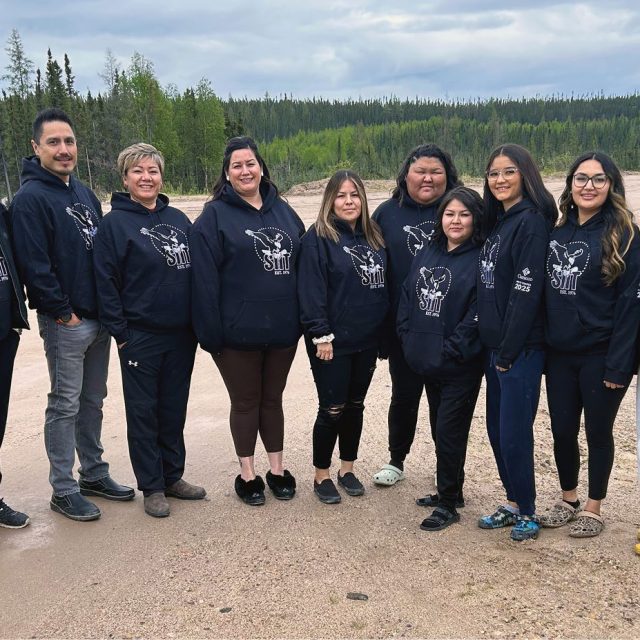Get in Touch
Prince Albert Office
200 - 255 34th Street West
Prince Albert, SK
Ph: 306.763.5636
Saskatoon Office
325-2555 Grasswood Road E
Corman Park, SK S7T 0K1
Ph: 306.384.0377
Fax: 306.382.2917


Building Skills in the North: Women in Trades Pilot Program Shows Promise
When Cameco teamed up with the Saskatchewan Indian Institute of Technologies (SIIT) and northern communities to run a six-month trades training pilot program at Rabbit Lake, the idea was simple: give northern residents a chance to build skills close to home. What came out of it was even more special: the first all-women trades cohort in Cameco’s history.
Kristin Cuddington, Director of Community and Indigenous Engagement at Cameco, recalls how it all came together. “Part of our long-term strategy is to work collaboratively with Indigenous and local communities aimed at skill enhancement and training for the north. We started with online courses, followed by short work experience placements at our mine sites,” she said. “The trades training pilot program at Rabbit Lake was a great next step. When we saw the level of interest from women, it became clear we had a unique opportunity to support an all-women group. Their success is theirs; they earned it. For us, it was about creating the space for them to see themselves in these roles.”
With some support from the Province of Saskatchewan, the program combined classroom learning with hands-on training in carpentry, electrical work, plumbing, welding, heavy-duty mechanics, and industrial mechanics. SIIT delivered the curriculum, along with the instructors, in addition to Cameco’s in-house trainers and supervisors. Students worked two weeks on and two weeks off, similar to Cameco mine site employees. They received cultural support from mine site and SIIT Elders/Knowledge Keepers, as well as mentorship from experienced tradespeople. The group completed the program this past June, and celebrated with a graduation at Rabbit Lake.
According to Cuddington, the women’s determination was inspiring. “They were showing up, working hard, and completing their courses. Nine of them graduated, and many have already secured employment, including some with Cameco, while others are pursuing opportunities elsewhere. Even for those who chose a different path, it was still a success, they built confidence, formed lasting connections, and created new opportunities for themselves.”
That kind of success, she adds, goes beyond individual achievements. It is part of a larger goal: training in the North, for the North.
Points Athabasca is already seeing the impact. Kyle Remus, Vice President of Operations, says these graduates bring valuable strengths to the field.
“Women graduates in the trades bring a much-needed dimension to our workforce. They not only help us meet growing labour demands in mining, civil construction, and environmental work but also strengthen diversity across our teams,” Remus said. “We’ve seen firsthand that diverse crews often problem-solve better, communicate more effectively, and foster stronger jobsite culture. All of that directly improves operational performance.”
For Points Athabasca, hiring these women isn’t just about filling positions; it’s about upholding their values. “It ensures that training investments made in northern communities translate into meaningful employment,” Remus explained. “By integrating women trades graduates into active projects, we are building long-term skills, confidence, and opportunities for northern residents to thrive within their own communities.”
At Points Athabasca, structured mentorship is a central component of this approach. Each new hire is paired with an experienced journeyperson, supported through safety training, regular check-ins, and access to resources. “Graduates from localized, mentorship-based programs enter the workforce with technical readiness and community-rooted accountability,” Remus said. “They already understand the northern environment, the importance of safety in remote operations, and the value of reliability. This translates into smoother integration on projects and more stable crews.”
Looking ahead, both Cameco and Points Athabasca acknowledge that northern Saskatchewan faces a significant skills gap in the trades. Pilot programs like this one are part of the solution. As Cuddington reflects, “Partnership and collaboration are key. Training in the North, for the North that was the guiding principle. And the women proved just how much can be accomplished when the opportunity is there.”